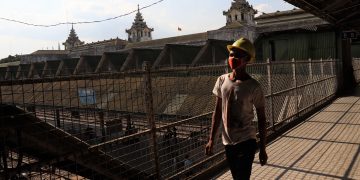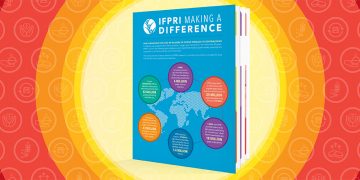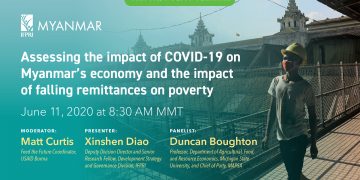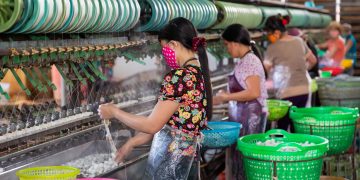As COVID-19 spreads in more low- and middle-income countries, we see a range of responses and effects. In this blog post, Xinshen Diao and Michael Wang assess the direct and indirect impacts on Myanmar’s economy after a two-week lockdown.
IFPRI making a difference
IFPRI is reaching the lives of millions of people through its contribution to policies and programs that reduce poverty, hunger, and malnutrition. This brochure highlights how IFPRI’s research is contributing to policy decisions and investments made by governments, development organizations, and other partners, and making a difference for food and nutrition security in developing countries around the world.
Assessing COVID-19’s impact on Myanmar’s economy, remittances, and poverty
Watch our recap of IFPRI's June 11th policy seminar discussing the findings of an analysis assessing the economic impacts of COIVD-19 on Myanmar's economy and the impact of falling remittances on poverty. In her presentation, Senior Research Fellow Xinshen Diao presents her research, which shows how Myanmar's April lockdown affected its GDP.
How will COVID-19 change the amount of remittances that Myanmar households receive?
Remittances are an important income source for low-income rural households in Myanmar. In their research, Xinshen Diao and Kristi Mahrt assess the impact of declining remittances caused by COVID-19 on Myanmar’s household incomes and poverty. They also estimate the financial support required to mitigate the negative effects of these impacts.
Which Myanmar industries will be hit hardest by the pandemic?
In this blog post, IFPRI researchers model the effects of the COVID-19 pandemic on Myanmar’s economy to support the design of policy interventions that can mitigate economic loss and support a sustained and robust recovery
- « Previous Page
- 1
- …
- 3
- 4
- 5
- 6
- 7
- Next Page »




